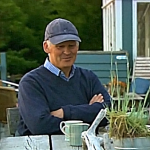Networking works in different ways for different people – the wise owls are back to share their experiences and preferences.
The parliament has also grown this month, with three new owls offering their maiden contributions: please welcome Louise Bolotin, Michael Faulkner and Nik Prowse, all Advanced Professional Members of the CIEP.
 Louise Bolotin*
Louise Bolotin*
I’m not a fan of formalised networking. At business networking meetings, the chat to others often feels forced and you’re supposed to have a dinky little elevator speech – it can get quite competitive and if you’re not a slick business type it’s easy to feel your face doesn’t fit.
Most such meetings I’ve attended in the past have involved breakfast and as I don’t usually eat until after 11am and never talk to anyone until I’m fully caffeinated, I long ago stopped inflicting such events on myself.
If you’re not a morning person, find an evening networking event if you can as there is usually a glass of wine on offer and a little booze can be a useful lubricant if you’re hesitant to go up to strangers and introduce yourself.
I haven’t stopped networking, however. I just take a more informal sideswipe at it. And where do I network? Everywhere. Bus stops, trains, the corner shop, the lifts in my block of flats… I make a point of talking to anyone. Networking is much more about building personal relationships, than practising an elevator speech everyone will have forgotten within five minutes. So make it personal. Have a funky business card and spread it around liberally, even in places you wouldn’t think to.
And make yourself memorable. My tip is to say something about yourself that’s not work-related. “I’m Louise, I’m a freelance editor and when I’m off-duty I like going to gigs. Who’s your favourite band?” A bit of small talk and, then, if you think it might be fruitful go in for the kill – subtly. I prefer, however, to see networking as a long game as it takes time to get to know people and understand how you might be able to work together.
 Michael Faulkner
Michael Faulkner
If you are interested in proofreading dissertations and theses, scour your address book for academic types with contacts in the universities, talk to people who are at or who have recently left uni, and join the alumni family of your own institution (if appropriate) – all with the aim of building a list of current profs across all the disciplines with which you’re comfortable. Then research the institutions’ proofreading policy and make a direct approach by email to each person identified, offering your services with the usual caveats. For a supervisor with language-challenged students, a trusted proofreader who understands the parameters is a time-saving resource, and they will come back again and again and will pass your name around.
Always carry a card and practise a concise pitch, cleverly disguised as small talk, which you can wheel out at any gathering. It’s amazing how many people there are who haven’t a clue what editing is about but who can still offer you work. If you edit fiction, for example, be aware that in any group of people there may well be one or two who have a novel in them, or a friend who writes, or an exercise book of poems at the back of the cupboard.
During the life of any project, get to know your client and, without being a pain, make sure the experience is fun. This will lead to repeat business and a growing network through referrals.
Allocate time-limited slots for daily social networking. LinkedIn is invaluable for cold introductions (‘You don’t know me, but we’re Linked’). Facebook groups and online editors’ organisations are great for accumulating knowledge and widening your list of contacts (and have a look beyond editorial groups at those servicing your target market – an obvious example for a fiction editor is a writers’ organisation with a directory of services for writers).
Finally, I find lots of referrals are generated by constructive engagement on the Society’s forums. Conversations begun there can be carried on by email, and a list of trusted colleagues can be built up quite quickly to whom work can be referred – which of course is a two-way street.
 Liz Jones
Liz Jones
I find networking easier to stomach if I don’t actually think of it as networking. For me it’s more about having conversations that reveal shared interests or a personal connection, and they can happen anywhere – it doesn’t have to be in the context of a business breakfast at the local work hub, or some other kind of formal networking event.
Some of my most successful ‘networking’, in terms of commissions won and money in my business bank account, has taken place at CIEP conferences or local group meetings, over coffee. Other ‘networking’ has happened on Twitter, and the connections I’ve made there have tended to be people who might share a professional specialism, yet have responded to me for some of the more offbeat, non-editorial things I share. This goes to show that there’s scope to relax and be yourself. In fact, I would argue that it’s essential. Not everyone will ‘get’ you, but those who do will truly value what you have to offer.
Another source of interaction that might classify as ‘networking’ has been via my blog, which often veers away from the strictly informational, editorial type of post and into the personal – and conversations arise from that. Again, not everyone will like it, but many people appreciate the honesty and like knowing that there’s a real person behind my website, who will take proper human care over their work. A final thing about networking: the editorial world is surprisingly small. Be nice to everyone (or if you can’t be nice, keep quiet). Give it a few years, and that newbie editorial intern you were patient with could turn out to be the publishing director… and with luck, they’ll still be sending work your way, and suggesting that their staff do too.
 Sue Littleford
Sue Littleford
I am a very reluctant networker. Not for me attending functions and introducing myself to strangers. But I refuse to feel guilty that I take a more sotto voce approach. I may not get the wide visibility that the more active marketers achieve, but I’m okay with that.
There are, however, small things you can do. A couple of Christmases ago, I sent out cards to my contacts, as I usually do (most of my work is repeat business). At the last moment, I popped a business card in each envelope. Hey presto – two clients I’d not worked with for a few months promptly booked me in straight after Christmas (mentioning it was getting my card that made them contact me), and I’ve worked several more times for each one since.
I always have at least a couple of business cards on me when I leave the house. You simply never know who you’re going to bump into – at a reunion recently, a friend I’d not seen for ages wanted to pass on my details to someone she knew. Easily done with the card I gave her.
At a CIEP conference I got talking to one of the speakers, who duly asked for my card – which, fortunately, I had on me. That got me more than half a dozen books to copy-edit.
I do do social media – mostly Facebook and Twitter. I got very grumpy with the discussion groups on LinkedIn, but I do keep an inactive profile there that I remember to update once in a blue moon, and if I’ve had a good interaction with someone in a Facebook editors’ group, I’ll eventually get over to LinkedIn and offer to link with that person. I’ve not got any jobs from my social media (so far as I know), but for me it’s more about adding to my online presence to give prospective clients a feel for me as a copy-editor.
If you’re a happy active networker, great. If you’re not, don’t despair – small actions can work very well indeed.
 Nik Prowse
Nik Prowse
There is more than one reason to network as an editorial freelance, and they serve different purposes. It’s not a case of ‘today I will do some networking’ but rather having an open mind about anyone you encounter in a business context. Part of this does involve actively seeking out a person with the aim of securing work, but it may just be a case of not turning your back on a working relationship that hasn’t always gone smoothly.
If you work with someone who you don’t get along with, not cutting your ties, not telling them what you think in a way that ends that relationship, may well serve you better in the long run than expressing your feelings in the present. You may decide that you don’t want to work with that particular person again, but keeping your bridges unburnt will keep the door open. The way a person comes across or acts can be the result of the organisation they are working within. In the future, that person may move to a different company with a different outlook. They may remember you and look you up, offering work. You might change your mind about perceived interpersonal difficulties if you find yourself short of work. Or the person may have a much more pleasant colleague whom they suggest you to, which could lead to a different, more fruitful relationship.
Keep doors open once a job is finished. I always aim to end a project on an upbeat note, perhaps with a cheery email to say how much I’ve enjoyed the work, wishing them good luck with the remainder of the production process and indicating my availability for the coming weeks. There are often projects in the pipeline. I work especially hard at this if it’s the first job for a new client, because repeat work is the Holy Grail in this instance. If your contact doesn’t have any work coming up, perhaps a colleague does? Often they will offer to circulate your name, or you could ask them to.
Maintaining links with people who work for your clients can sometimes be tricky: jobs change, roles merge (sadly, redundancies happen) and people move on. If I get a whiff of anyone moving on I always ask where to. They may be going to another company – read: potential client – with which you can forge a new connection. Freelancing is a lonely business, and having friendly personal contact with the people you work with (=for) can be rewarding. But it can also be good in terms of networking.
Finally, probably the most personally rewarding type of networking is the sort you do with freelance colleagues, the others at the coal face. This is one of the most valued aspects of my membership of the CIEP, with the local groups and the online community of the forums. This is where problems can be shared, solutions found, ideas started, and friendships made. Recently I made an effort to connect to a lot more editors on Twitter, and it’s made me feel part of a true community.
*Louise Bolotin died in October 2022; her contributions are much missed.
Posted by Abi Saffrey, CIEP blog coordinator.
The views expressed here do not necessarily reflect those of the CIEP.

